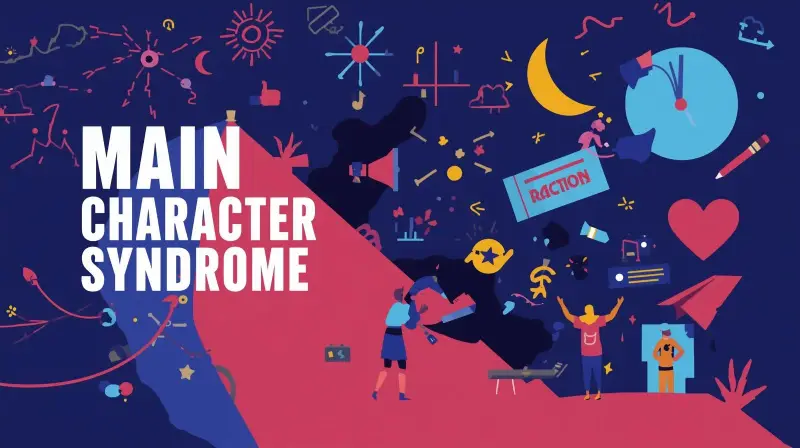In today’s hyper-connected world, the landscape of relationships has evolved dramatically. While technology has brought people closer, it has opened new avenues for deceit and betrayal. Infidelity, once limited to physical and emotional realms, has now infiltrated the digital space, making it easier yet more complex. This article explores the phenomenon of infidelity in the digital age, examining its causes, impacts, and ways to heal from its wounds. As we navigate this intricate topic, we aim to provide insights and solutions to help individuals and couples understand and cope with digital infidelity.
What is Infidelity in a Digital Age

Infidelity in the digital age extends beyond physical encounters to include emotional and sexual betrayals conducted via technology. This encompasses a range of activities such as sexting, online flirting, and forming emotional connections through social media or dating apps. Unlike traditional infidelity, digital infidelity can happen without physical contact, making it harder to define and recognize. The anonymity and accessibility of the internet provide a seemingly consequence-free environment for those seeking such interactions, further blurring the lines of what constitutes cheating. As digital interactions become more integrated into daily life, understanding and addressing digital infidelity becomes crucial for maintaining trust in modern relationships.
8 Reasons for the Rise of Infidelity in a Digital Age

- Ease of Access: The internet provides endless opportunities for connection, making it easy for individuals to seek extramarital interactions without leaving their homes. Online dating apps and social media platforms create a virtual space where people can interact with others discreetly and conveniently. This accessibility lowers the barrier to initiating and maintaining illicit relationships, as one can engage in these activities anytime and anywhere, often without their partner’s knowledge.
- Anonymity: Digital platforms allow users to create anonymous profiles, reducing the fear of being caught and enabling bolder actions that might not occur in face-to-face settings. This anonymity can encourage individuals to explore forbidden relationships and behaviors as they feel shielded from the consequences. The ability to hide behind a screen name or avatar can make people more daring and less inhibited, contributing to the rise of online infidelity.
- Constant Connectivity: Smartphones and social media apps ensure that people are always reachable, facilitating continuous and instant communication that can foster illicit relationships. This constant connectivity means that individuals can maintain a secret relationship without interruption, seamlessly weaving their digital infidelity into their daily routine. The ease of sending a quick message or sharing intimate moments in real-time creates a fertile ground for ongoing digital affairs.
- Social Media Influence: Platforms like Facebook and Instagram can rekindle old flames or spark new interests, as people often portray idealized versions of themselves online. Social media allows for re-establishing past connections and discovering new ones through shared interests and mutual friends. The curated lives presented on these platforms can seem more attractive and exciting than the mundane realities of long-term relationships, enticing individuals to engage in digital infidelity.
- Emotional Fulfillment: For some, digital relationships provide an emotional outlet they feel is missing in their current relationship. These virtual interactions can offer validation, excitement, and a sense of being desired, which might be lacking in their everyday lives. The emotional connection formed through consistent communication and shared experiences online can be profoundly satisfying, leading some to prioritize these digital bonds over real-life relationships.
- Sexual Exploration: The internet provides a platform for exploring sexual fantasies and desires anonymously. Online communities, forums, and dating apps cater to a wide range of sexual interests, making it easier for individuals to find partners who share their specific fantasies. This exploration, conducted discreetly and without the risk of real-life exposure, can lead to digital infidelity as people seek out new experiences that they might not feel comfortable pursuing with their regular partners.
- Work-Related Interactions: Professional networking sites and work-related communication tools can blur the lines between professional and personal relationships. Increased interaction with colleagues through emails, chats, and video calls can create opportunities for developing emotional and romantic connections. The frequent and often personal nature of these communications can foster intimacy that might cross the boundaries of a professional relationship, leading to digital infidelity.
- Lack of Consequences: Many perceive online interactions as less severe or harmful than physical cheating, leading to a justification of their actions. The perceived lower stakes of digital infidelity, combined with the belief that “it’s just online,” can lead individuals to downplay the significance of their behavior. This mindset allows them to engage in digital affairs with less guilt or fear of repercussions, further contributing to the rise of infidelity in the digital age.
10 Ways Digital Infidelity is Different from Infidelity Alone

- Accessibility and Convenience: Digital infidelity offers unparalleled convenience, allowing individuals to engage in secretive behavior at any time and from anywhere, unlike traditional infidelity, which often requires physical presence and coordination.
- Anonymity and Pseudonymity: The internet allows for anonymous or pseudonymous interactions, giving individuals the freedom to explore infidelity without revealing their true identity, which is not possible with physical infidelity.
- Emotional Affairs: Digital infidelity often revolves around emotional connections formed through sustained communication, which can be as impactful, if not more, than physical infidelity. The emotional intimacy developed through online interactions can lead to a more profound sense of betrayal.
- Constant Connectivity: The ability to stay connected 24/7 through smartphones and computers means that digital affairs can be maintained consistently, unlike physical infidelity, which might be limited by time and location constraints.
- Digital Footprint: Unlike physical affairs, digital infidelity leaves a traceable digital footprint, including messages, emails, and social media interactions, which can be discovered and used as evidence of betrayal.
- Fantasy vs. Reality: Digital infidelity often exists in a realm of fantasy, with individuals projecting idealized versions of themselves and their relationships. This can create unrealistic expectations and a skewed perception of reality.
- Ease of Termination: While having an actual affair may present more difficult logistical and emotional issues, ending a digital affair can be as easy as blocking or unfriending someone.
- Psychological Impact: The psychological impact of digital infidelity can be profound, as it often involves a deep emotional betrayal. Discovering a digital affair can lead to feelings of inadequacy, jealousy, and mistrust.
- Social Acceptability: Society’s perception of digital infidelity is still evolving, with some viewing it as less severe than physical cheating. This ambiguity can lead to different interpretations and justifications of the behavior.
- Boundary Blurring: Digital infidelity blurs the lines between what is considered acceptable online behavior and what constitutes cheating. The lack of clear boundaries can complicate the understanding and management of infidelity in relationships.
7 Ways It Can Impact Our Day-to-Day Lives

- Emotional Distress: Discovering a partner’s digital infidelity can lead to significant emotional turmoil, including feelings of betrayal, anger, and sadness. This emotional distress can affect daily functioning and overall well-being.
- Trust Issues: Digital adultery can seriously damage a relationship, breeding constant suspicion and doubt. Restoring trust can be drawn out and difficult, impacting both the partnership’s daily dynamics and day-to-day contacts.
- Communication Breakdown: When digital infidelity is exposed, it can cause communication problems between spouses. A good relationship requires effective communication to resolve difficulties, which can result in more problems.
- Mental Health Impact: Mental health can be negatively impacted by the tension and worry brought on by digital infidelity. People may struggle with poor self-esteem, anxiety, and depression, which makes it difficult for them to go about their everyday lives and interact with others.
- Work Performance: The emotional and psychological effects of digital infidelity can spill over into the workplace, affecting concentration, productivity, and overall job performance. Due to ongoing distress, individuals might find it challenging to focus on work tasks.
- Social Relationships: The fallout from digital infidelity can extend to social relationships, as individuals may withdraw from friends and family or seek support from their social network. The impact on social interactions can further isolate the affected individual.
- Parental Responsibilities: For couples with children, digital infidelity can strain co-parenting dynamics and affect the overall family environment. The emotional distress and conflict between partners can impact their ability to provide a stable and supportive environment for their children.
15 Ways to Recover from the Emotional Wound

- Acknowledge the Pain: Recognize and accept the emotional pain caused by digital infidelity. Allow yourself to feel and process the emotions rather than suppressing them.
- Seek Professional Help: Consider seeking therapy or counseling to navigate the complex emotions and work through the pain. A professional can provide guidance and support during the healing process.
- Open Communication: Encourage candid and open dialogue with your spouse regarding adultery, tackling the root causes and striving to restore mutual trust.
- Set Boundaries: Establish clear boundaries regarding digital interactions and online behavior to prevent future instances of digital infidelity.
- Rebuild Trust: Strive to re-establish trust by being accountable, transparent, and acting consistently. Rebuilding trust takes time, effort, and dedication.
- Self-Care: Make self-care activities that support your emotional, mental, and physical health a priority. Take part in enjoyable and soothing activities.
- Reflect on the Relationship: Consider the relationship’s strengths and weaknesses. Identify areas that need improvement and work together to address them.
- Practice Forgiveness: Forgiveness is an essential first step in the healing process. Letting go of the grudge to move on does not imply forgetting or endorsing the behavior.
- Develop Coping Strategies: Develop constructive coping mechanisms, such as journaling, meditation, or taking up a hobby, to deal with the emotional turmoil.
- Rebuild Intimacy: Try to re-establish physical and emotional closeness with your spouse. Intimate relationships are essential for happy and healthy relationships.
- Focus on Personal Growth: Use this experience as an opportunity for personal growth and self-improvement. Reflect on your values, goals, and aspirations.
- Seek Support: Rely on family members and close friends for assistance. Talking to those you love about your feelings can help you get perspective and comfort.
- Practice Patience: Healing from digital infidelity takes time. Be patient with yourself and your partner as you work through the emotions and rebuild the relationship.
- Create New Memories: Make fresh, happy memories with each other. Participate in activities that strengthen your relationship and foster a sense of joy and connection.
- Consider the Future: Look towards the future with hope and optimism. Set goals for the relationship and work together towards achieving them, keeping the lessons learned from this experience in mind.
Conclusion
Digital infidelity presents a unique set of challenges in the context of modern relationships. As technology continues to evolve, so does the landscape of romantic interactions, making it imperative to understand and address the nuances of digital betrayal. The emotional impact of discovering a partner’s digital infidelity can be profound, affecting trust, communication, mental health, and even professional and social lives. However, the healing journey begins with acknowledging the pain and seeking professional help if necessary. Open communication and setting clear boundaries are critical steps in rebuilding trust and preventing future instances of infidelity. Self-care, personal growth, and creating new positive memories can help restore a sense of normalcy and joy in the relationship. By addressing the underlying issues and working together towards a common goal, couples can emerge more robust and more resilient.




